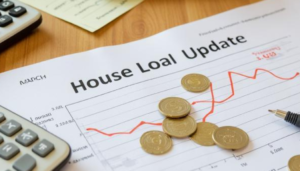Real Estate Private Equity (REPE) has long been considered the domain of large institutional investors. But in recent years, this dynamic investment strategy has become increasingly accessible to individuals looking to diversify their portfolios, seek exclusive opportunities, and aim for higher returns than traditional real estate or financial products. In France, this trend is gaining momentum, with platforms like Openstone leading the way.
What is Real Estate Private Equity?
REPE involves investing in unlisted companies within the real estate sector—such as those focused on property development, renovation, or managing assets like logistics centers, data facilities, or managed residences. Unlike direct real estate ownership or classic vehicles such as SCPI or OPCI, REPE offers access to larger, often off-market projects. These deals typically require specialized expertise and proactive asset management, but in return, they offer the potential for significant value creation and higher yields.
How Does Real Estate Private Equity Work?
The investment process generally includes:
- Fundraising: Pools of capital are raised from both private and institutional investors.
- Opportunity Selection: Managers analyze and acquire undervalued or high-potential real estate assets.
- Value Creation: Through renovation, redevelopment, or repositioning, managers enhance the value of these assets.
- Exit: After a holding period of 5 to 10 years, assets are sold with the intention of achieving high returns for investors.
The entrepreneurial nature of this model—buying, enhancing, and eventually selling—is what sets REPE apart from more passive real estate strategies.
What Are the Returns and Risks?
- Targeted Return: REPE investments in France often aim for net returns between 10% and 15% per year, depending on the fund and strategy.
- Typical Investment Horizon: The standard holding period ranges from 5 to 10 years.
- Liquidity: These are long-term, relatively illiquid investments. Capital is generally tied up for the duration of the fund’s life.
- Capital Risk: As with any investment, there is no guarantee of capital protection. However, professional management and diversified strategies seek to mitigate risks.
Why Is REPE Attractive for French Investors?
REPE offers several compelling advantages:
- Access to Exclusive Assets: Investments cover unique properties—logistics, data centers, managed residences—often out of reach for individual investors.
- Diversification and Risk Management: Exposure to multi-sector and pan-European assets lessens risk tied to specific markets.
- Active Value Creation: Managers actively boost asset values, increasing the potential for outsized returns.
- Professional Oversight: Expert teams handle selection, management, and disposition of assets.
- Tax Optimization: There are strategies for optimized taxation, with potential benefits depending on your profile and fund structure.
Openstone: Democratizing Real Estate Private Equity in France
Openstone is currently a reference platform in France, making this high-potential asset class available to individuals from a minimum investment of €30,000 (under certain conditions). Their offer includes:
- Accessible Entry: Traditionally off-limits to non-institutional investors, now possible from €30,000 or €100,000.
- Diversified Portfolios: Exposure to various real estate sectors and European markets.
- Performance Goals: Targeting 10–15% net IRR (though past performance does not guarantee future results).
- Transparency: Thorough project analyses and investor support.
- Exclusive Opportunities: Access to international funds typically reserved for the institutional market.
Taxation for French Investors
- For Individuals: Capital gains are generally only taxed at exit, at a flat rate of 30% (including social charges). The IFI (French real estate wealth tax) may not apply depending on fund structure, and there is potential access to specific favorable regimes (like 150-0 B ter).
- For Companies: Dividends may be 95% exempt under the parent-subsidiary regime, and SMEs may benefit from a 15% long-term gains rate.
Who Should Consider REPE?
This model is best suited for:
- High net worth or experienced investors aiming for advanced diversification.
- Those seeking exposure to exclusive, value-added real estate assets.
- Long-term savers, able to commit funds for 5–10 years.
- Wealth management professionals seeking novel solutions for their clients.
The Bottom Line
Real Estate Private Equity is an exciting option for individuals in France seeking to enhance their portfolios with a strategic, long-term investment. With platforms like Openstone, what was once available only to major institutional players is now within reach for private investors, albeit still with a serious threshold and long investment horizon. The combination of access, diversification, professional management, and attractive return potential—coupled with careful attention to risks and liquidity—makes REPE a compelling consideration in today’s evolving investment landscape.
Interested in learning more? Discover Openstone’s investment opportunities and start building your diversified real estate portfolio today!









